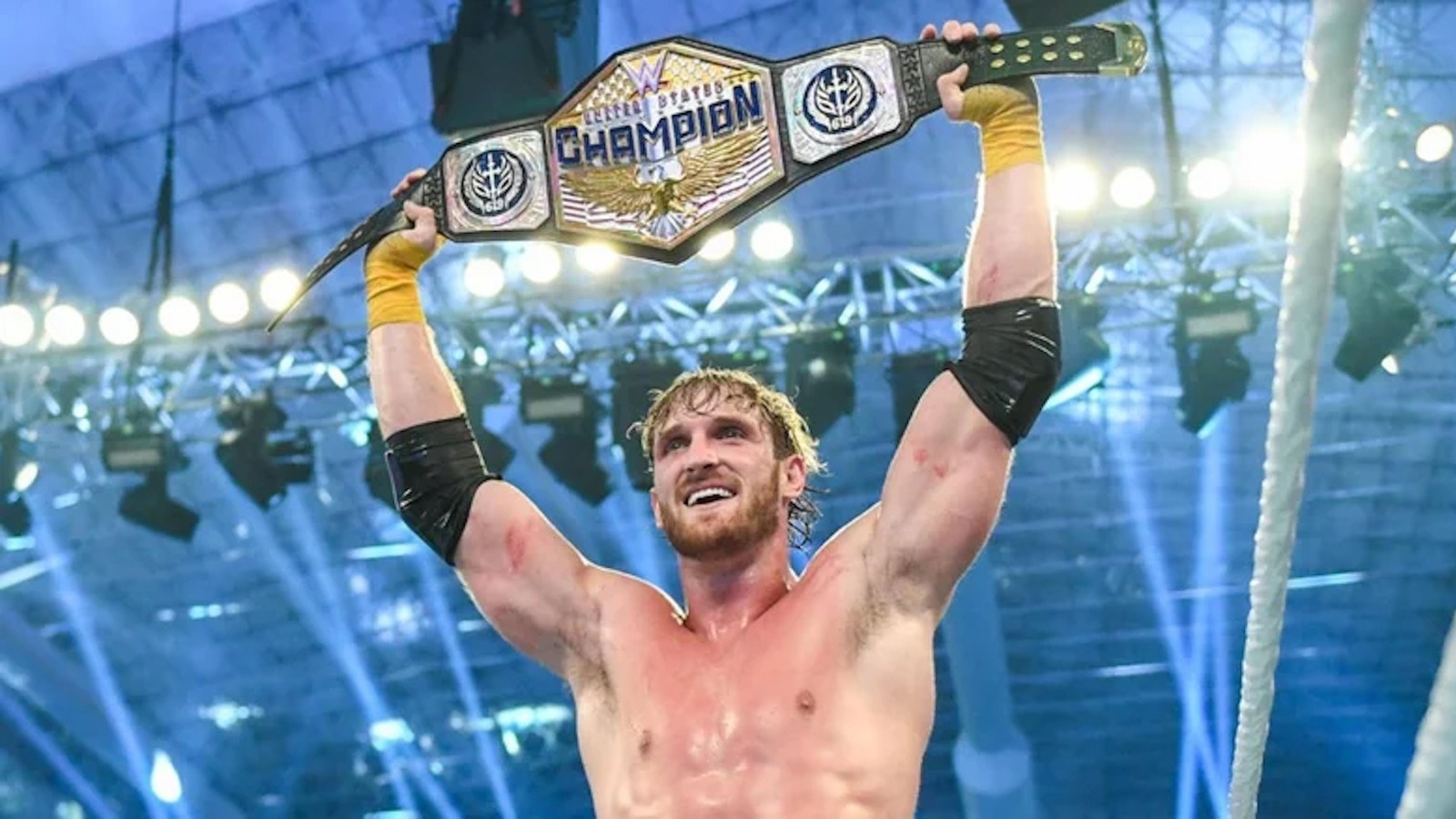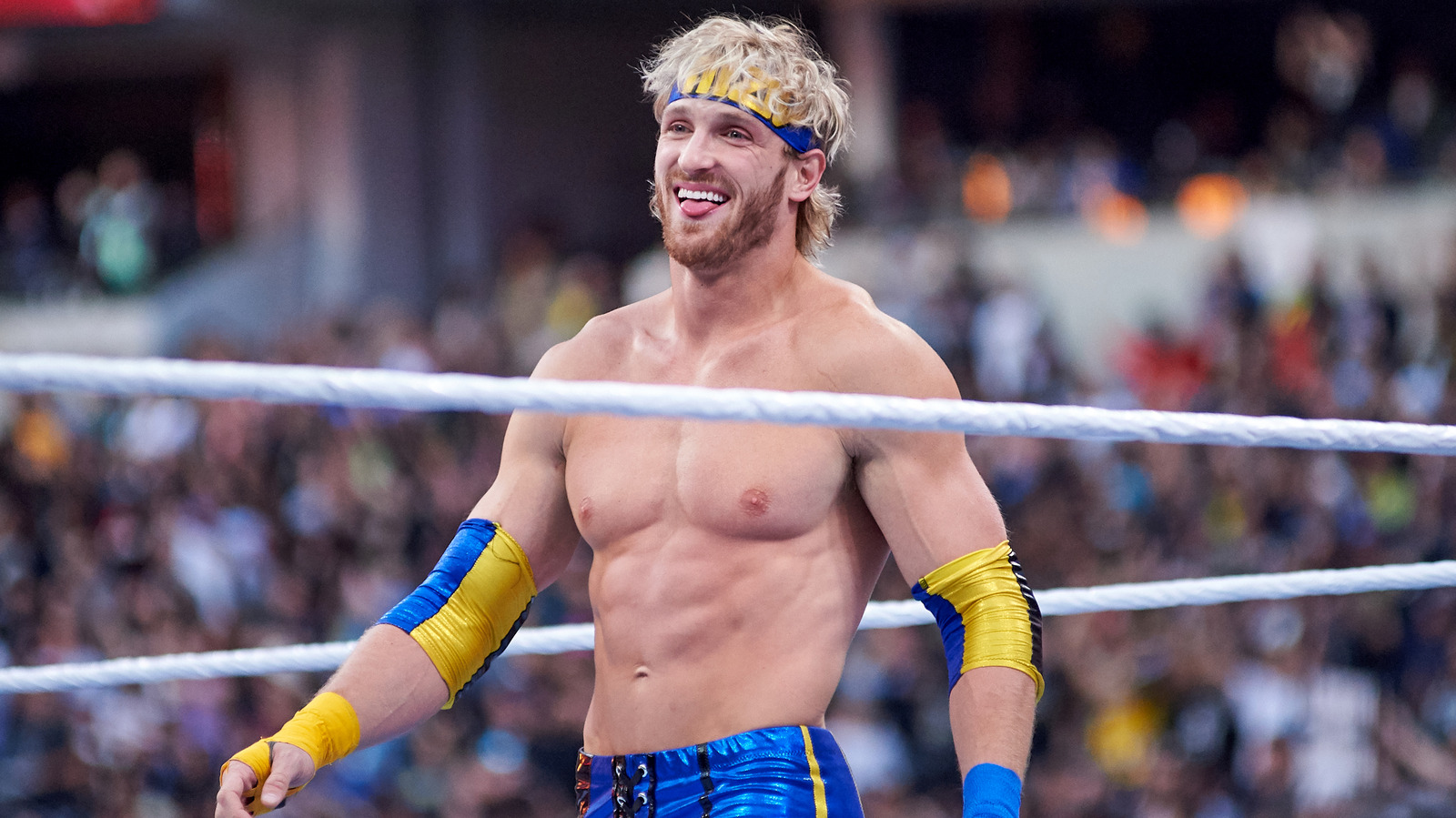**The name Logan Paul often conjures images of audacious stunts, viral content, and, for many, the indelible memory of the "woods video" incident that sent shockwaves across the internet and beyond.** This event, which unfolded in late 2017, transcended typical online drama, sparking a global conversation about ethical content creation, the responsibilities of digital influencers, and the profound impact of their actions on a global audience. It was a moment that not only reshaped Logan Paul's career but also forced a reckoning within the burgeoning creator economy, highlighting the urgent need for empathy, sensitivity, and accountability in the pursuit of viral fame. This article delves deep into the specifics of the **Logan Paul woods video** incident, exploring its origins, the immediate and long-term repercussions, and the broader lessons it offers for creators, platforms, and consumers in the digital age. We will unpack the context, the public outcry, and the subsequent efforts made to address the fallout, providing a comprehensive overview of an event that remains a critical case study in online media ethics.
Table of Contents
Who is Logan Paul? A Brief Biography
Before diving into the specifics of the "woods video," it's essential to understand who Logan Paul is and how he rose to prominence. Born on April 1, 1995, in Westlake, Ohio, Logan Alexander Paul quickly became one of the most recognizable and, at times, controversial figures in the digital landscape. His journey from a Vine star to a YouTube sensation, boxer, podcaster, and entrepreneur illustrates the rapid evolution of celebrity in the 21st century.
Early Life and Rise to Stardom
Logan Paul's foray into online content began on Vine, the short-form video platform, where he amassed millions of followers with his comedic skits and public pranks. His energetic personality and willingness to push boundaries quickly translated into massive engagement. When Vine shut down, he successfully transitioned to YouTube, where he continued to build his brand, creating daily vlogs that chronicled his life, adventures, and often outlandish stunts. His content was characterized by high production value, a fast-paced editing style, and a constant pursuit of virality. This approach garnered him a massive following, particularly among younger demographics, making him a significant influencer with considerable reach and commercial appeal. His brother, Jake Paul, also carved out a similar path, and together they became known for their provocative content and larger-than-life personas.
Personal Data / Biodata
| Full Name | Logan Alexander Paul |
| Born | April 1, 1995 (age 29 as of 2024) |
| Birthplace | Westlake, Ohio, U.S. |
| Nationality | American |
| Occupation | Internet personality, actor, boxer, podcaster, entrepreneur |
| Years Active | 2013–present |
| Known For | YouTube vlogs, Vine videos, professional wrestling (WWE), Prime Hydration (co-founder) |
| Social Media Presence | Millions of followers across YouTube, Instagram, X (formerly Twitter), TikTok |
The Aokigahara "Woods Video" Controversy
The incident that became synonymous with the **Logan Paul woods video** refers to a vlog he uploaded on December 31, 2017, titled "We found a dead body in the Japanese Suicide Forest…". The video documented his trip to Aokigahara, a forest at the base of Mount Fuji in Japan, notoriously known as a frequent site of suicides.
The Events of December 2017
During his visit to Aokigahara, Logan Paul and his crew stumbled upon a deceased individual. Instead of immediately ceasing filming and respecting the solemnity of the situation, Paul continued to record, showing the body from a distance and zooming in, albeit with the face blurred. Throughout the segment, Paul and his companions made jokes and lighthearted remarks, expressing shock but also a disturbing lack of solemnity. Paul even stated, "Suicide is not a joke," yet his actions and the tone of the video directly contradicted this sentiment. The video quickly went viral, not for its usual entertainment value, but for its shocking insensitivity and profound disrespect for the deceased and the incredibly sensitive topic of suicide. This moment defined the **Logan Paul woods video** as a turning point in his career and in the broader conversation about influencer ethics. The decision to film, edit, and then upload such content was met with immediate and widespread condemnation. Critics argued that the video was a blatant attempt to sensationalize a tragedy for views, exploiting a deeply distressing situation for personal gain. It was seen as a gross violation of privacy, dignity, and a dangerous trivialization of mental health issues and suicide, especially given his young, impressionable audience.
The backlash against the **Logan Paul woods video** was swift, intense, and global. Social media platforms erupted with condemnations from celebrities, mental health advocates, fellow YouTubers, and the general public. Hashtags like #LoganPaulIsOver trended worldwide, reflecting the widespread outrage. Critics lambasted Paul for his insensitivity, lack of judgment, and apparent disregard for the ethical implications of his content. Many expressed concern for the potential negative impact on his young audience, who might be exposed to such disturbing content without proper context or guidance.
YouTube's Response and Monetization Issues
Initially, YouTube faced criticism for its slow response to the controversy. While the video was eventually removed, it had already garnered millions of views. The platform subsequently took several actions against Logan Paul. They removed him from their Google Preferred advertising program, which offers premium ad rates for top creators, and put his original series and other projects on hold. This was a significant financial blow and a clear signal from YouTube that such content would not be tolerated. The incident prompted YouTube to review and update its content policies, particularly regarding sensitive topics and creator responsibility. It highlighted the challenges faced by platforms in moderating vast amounts of user-generated content while balancing freedom of expression with community guidelines and ethical considerations. The **Logan Paul woods video** served as a stark reminder of the power and potential pitfalls of user-generated content platforms.
Navigating the Aftermath: Apologies and New Directions
In the wake of the intense backlash, Logan Paul issued multiple apologies. His first apology, posted on X (formerly Twitter), was criticized by some as insincere and self-serving. He then released a more somber video apology on YouTube, expressing remorse and acknowledging the gravity of his actions. In this video, he stated he was taking time off to reflect and learn. Following the initial apologies, Paul took steps to address the criticism and demonstrate a commitment to understanding mental health issues. He pledged $1 million to suicide prevention organizations and collaborated with experts to create content focused on mental health awareness and suicide prevention. He also produced a documentary titled "Suicide: Unlocked," which explored the complexities of suicide and featured interviews with survivors and experts. While these efforts were met with mixed reactions – some viewed them as genuine attempts at redemption, others as damage control – they marked a noticeable shift in his content strategy and public persona. The incident undeniably forced Logan Paul to confront the ethical dimensions of his immense platform and the profound responsibility that comes with it, moving beyond the sensationalism that characterized his earlier work.
The Enduring Legacy of the "Woods Video"
The impact of the **Logan Paul woods video** was far-reaching and continues to resonate in the digital media landscape. For Logan Paul himself, it marked a significant turning point. While his subscriber count initially dipped, he eventually recovered much of his audience, albeit with a more scrutinized public image. The incident arguably forced him to mature as a content creator, leading him to diversify his ventures beyond daily vlogging. He pivoted significantly into professional boxing, participating in high-profile exhibition matches against fellow YouTubers and professional fighters, which garnered massive pay-per-view numbers. He also launched a highly successful podcast, "Impaulsive," which features interviews with a wide range of guests, and co-founded the popular hydration drink, Prime. The controversy also had a lasting effect on how platforms like YouTube approach content moderation, creator accountability, and brand safety. It spurred stricter guidelines, increased emphasis on responsible content creation, and a greater awareness among advertisers about where their ads appear. The incident became a cautionary tale, highlighting the precarious balance between creative freedom and ethical responsibility for anyone wielding significant influence online. The **Logan Paul woods video** remains a benchmark for discussions on influencer conduct.
Beyond the "Woods Video": Lessons for Content Creators
The **Logan Paul woods video** stands as a stark lesson for aspiring and established content creators alike. It underscored several critical ethical considerations that every individual with a public platform must internalize: * **Empathy and Sensitivity:** The most glaring lesson is the paramount importance of empathy, especially when dealing with sensitive topics like mental health, tragedy, and human suffering. Content creators must always consider the potential emotional impact of their content on their audience and on those directly affected by the events they portray. * **Responsibility to Audience:** Influencers, particularly those with young or impressionable followers, hold a significant responsibility. Their content can shape perceptions, normalize behaviors, and influence attitudes. Exploiting sensitive situations for views betrays this trust. * **Consequences of Actions:** The incident demonstrated that actions in the digital realm have real-world consequences, affecting careers, sponsorships, and public perception. The pursuit of virality should never come at the expense of ethical boundaries. * **Platform Accountability:** The controversy also highlighted the need for platforms to proactively enforce their guidelines and take decisive action against content that violates ethical standards or poses harm. It pushed platforms to invest more in moderation tools and policies. * **Authenticity vs. Exploitation:** There's a fine line between authentic, raw content and exploitative sensationalism. Creators must constantly evaluate their motivations and ensure their content genuinely adds value or entertains without causing harm or disrespect. The incident served as a wake-up call, emphasizing that being a digital celebrity comes with a unique set of ethical obligations that extend far beyond simply generating clicks.
Accountability and Growth in the Digital Age
The digital landscape is constantly evolving, and with it, the expectations placed on content creators and the platforms that host them. The **Logan Paul woods video** incident was a pivotal moment that accelerated conversations around accountability and ethical practices. Since then, there have been increasing calls for greater transparency, more robust content moderation, and clearer guidelines for creators. Platforms have invested more in AI-driven content filtering, human moderators, and systems for reporting problematic content. They have also become more proactive in penalizing creators who violate their terms of service, sometimes resulting in demonetization, temporary suspensions, or even permanent bans. For creators, the emphasis has shifted towards building sustainable brands based on genuine connection and responsible content, rather than solely chasing fleeting viral moments. Many creators now actively engage in social responsibility, using their platforms to raise awareness for important causes, promote positive messages, and foster healthier online communities. The era of "anything goes" for viral content is slowly giving way to a more nuanced understanding of the power and responsibility that comes with digital influence.
Conclusion: Rethinking Responsibility in the Digital Sphere
The **Logan Paul woods video** controversy remains a potent reminder of the complexities and ethical challenges inherent in the digital age. It underscored the immense power of online platforms and the individuals who wield influence on them, demonstrating how a single piece of content can ignite global outrage and force a re-evaluation of industry standards. While Logan Paul has undeniably moved on and diversified his career, the incident serves as an enduring case study in the critical importance of empathy, judgment, and ethical responsibility for anyone operating in the public eye. For content creators, the lesson is clear: the pursuit of views and subscribers must never overshadow the fundamental principles of human dignity and respect. For platforms, it highlights the continuous need for vigilance, robust moderation, and clear communication of ethical guidelines. And for audiences, it reinforces the importance of critical consumption, holding creators accountable, and advocating for a more responsible and compassionate online environment. The legacy of the **Logan Paul woods video** is not just about a single creator's mistake, but about the collective journey towards building a more ethical and mindful digital world. We encourage you to reflect on the impact of online content and consider how you can contribute to a more positive and respectful digital community. Share your thoughts in the comments below, and explore other articles on our site that delve into media ethics and the evolving world of online influence.


